Navigating ‘Red Lines’ On Taiwan in Quest For ‘Common Ground’ Reportedly 'Key' to Biden-Xi Summit
12:00 GMT 15.11.2021 (Updated: 12:43 GMT 19.06.2023)
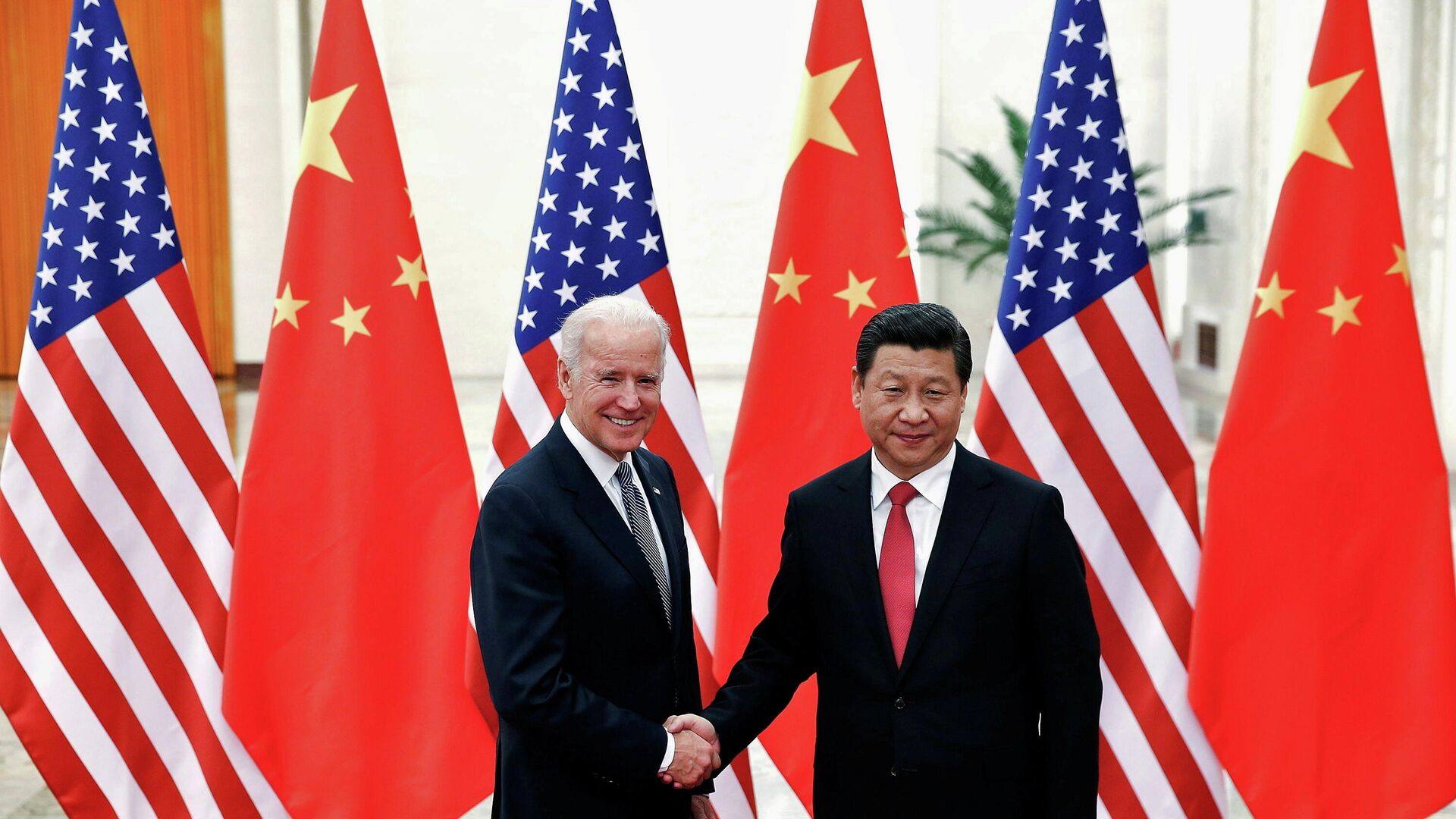
© REUTERS / POOL New
Subscribe
US President Joe Biden and China's President Xi Jinping are scheduled to hold a virtual one-on-one summit on Monday evening to exchange views on bilateral relations and discuss ways to “work together where our interests align", according to the White House.
Ahead of the virtual meeting between US President Joe Biden and China's President Xi Jinping, the two countries’ diplomats have exchanged barbed statements on the flashpoint issue of Taiwan. The mutual rhetoric on this subject alone is seen as a sign of the many hurdles ahead before the sides can hope to achieve breakthroughs in negotiations.
Beijing has repeatedly emphasized to Washington that Taiwan is its “core interest”, while actions “emboldening Taiwan secessionists in their brinksmanship” are fraught with not only derailing Sino-US relations, but also leading the world into an abyss, wrote China Daily in its editorial on the eve of the summit.
China’s Foreign Minister Wang Yi, in a telephone call on 13 November, slammed Washington’s “wrong words and deeds”, warning that “any connivance of and support for the ‘Taiwan independence’ forces...would only boomerang in the end,” according to a readout of the call released by China on Saturday. The visit by a US congressional delegation to Taiwan had also rankled with the Chinese side.
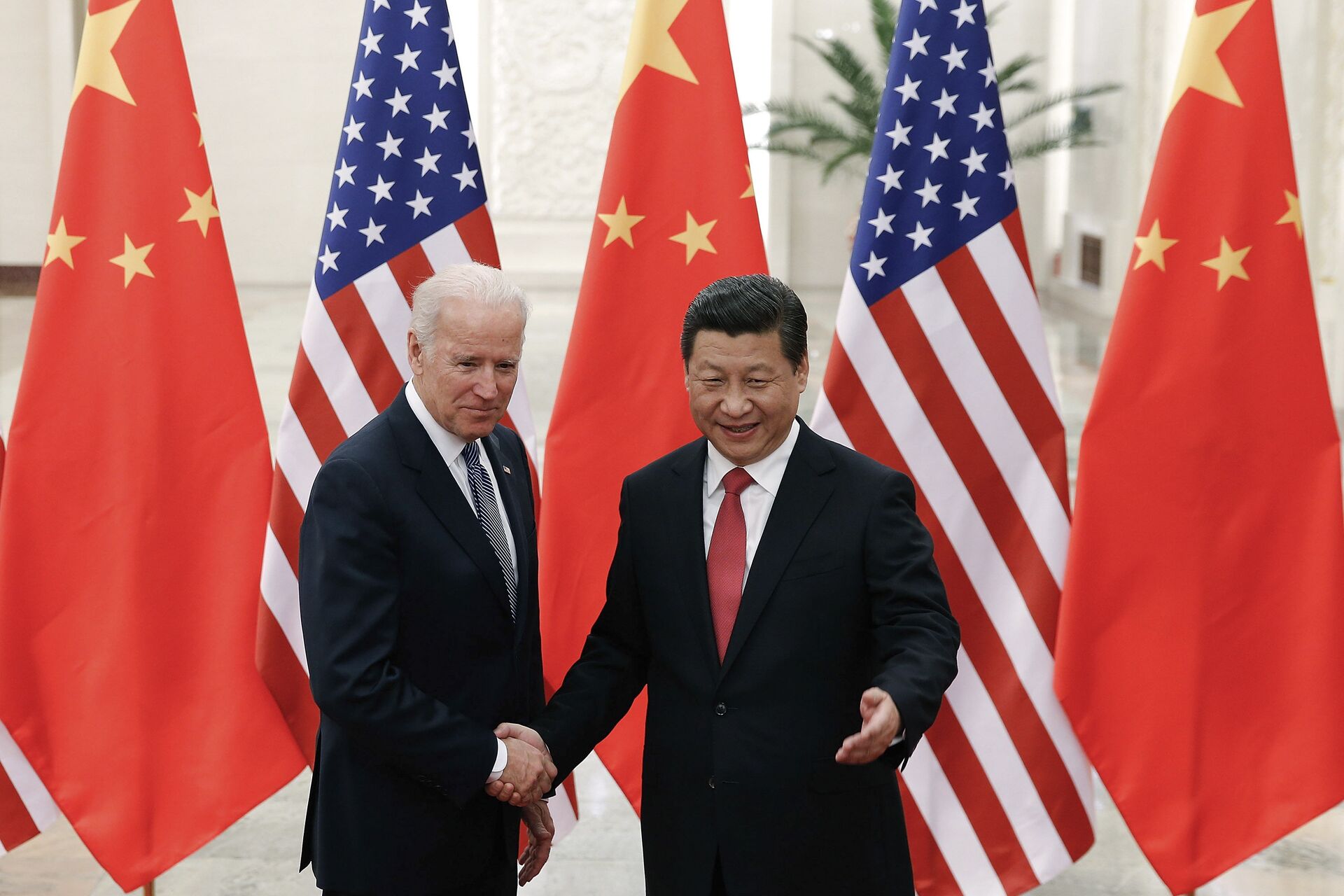
FILE - In this Dec. 4, 2013, file photo, Chinese President Xi Jinping, right, shakes hands with then U.S. Vice President Joe Biden as they pose for photos at the Great Hall of the People in Beijing.
© AP Photo / Lintao Zhang
Meanwhile, US Secretary of State Antony Blinken “expressed concern regarding the PRC’s [People’s Republic of China’s] continued military, diplomatic, and economic pressure against Taiwan” in a reference to the recent People’s Liberation Army drills near the island that Beijing considers an integral part of China.
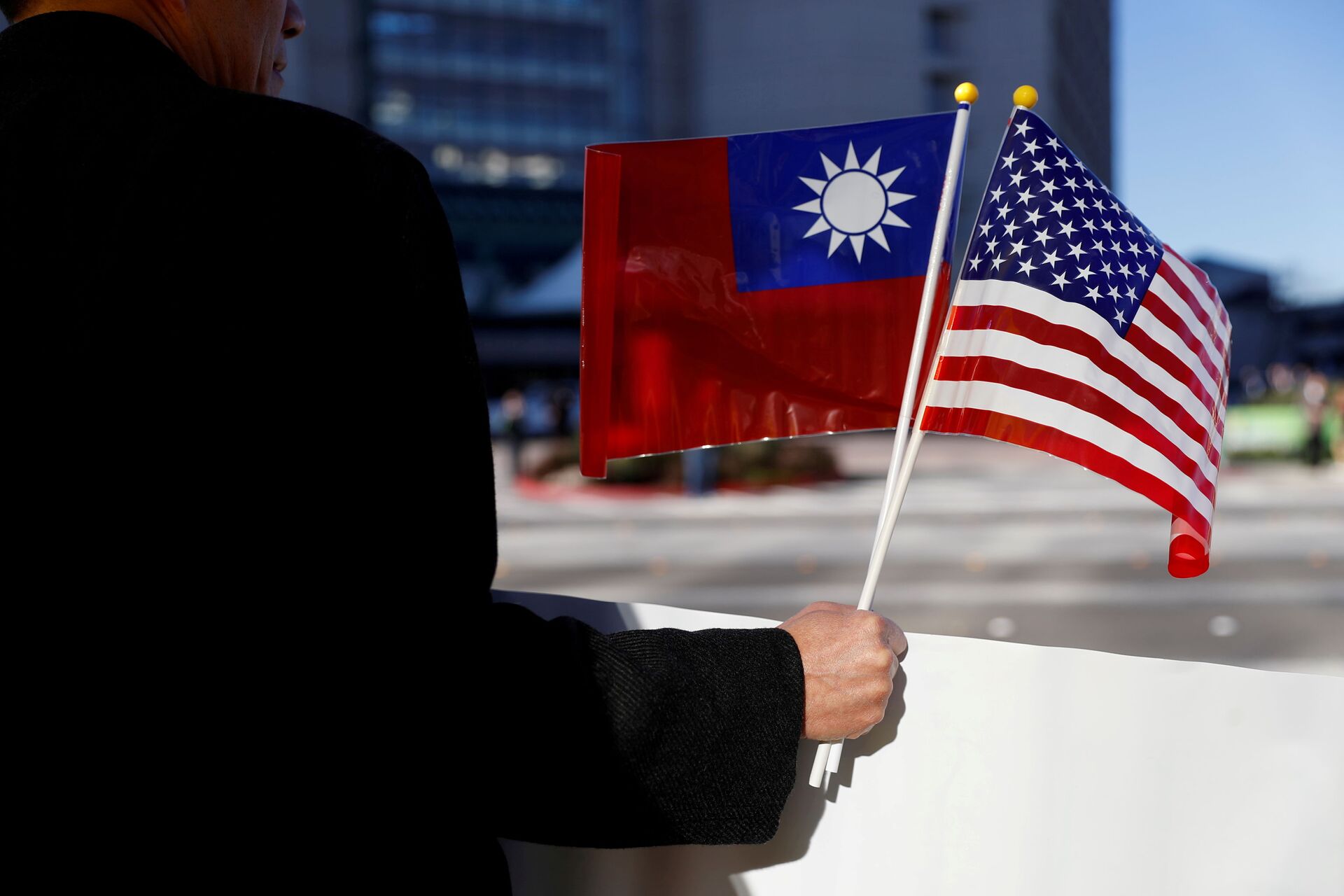
A demonstrator holds flags of Taiwan and the United States in support of Taiwanese President Tsai Ing-wen during an stop-over after her visit to Latin America in Burlingame, California, U.S., January 14, 2017. REUTERS/Stephen Lam/File Photo
© REUTERS / Stephen Lam
Beijing believes that Taiwan, which has been led by a separate government since the end of the Chinese Civil War in 1949, is destined for peaceful reunification along the One Country, Two Systems model previously applied to Hong Kong. Taipei has political and economic relations with several other nations that recognise its sovereignty.
Nevertheless, despite no major deliverables expected from the meeting between Xi Jinping and Joe Biden, both State Councilor and Foreign Minister Wang Yi and US Secretary of State Antony Blinken affirmed the significance of the encounter. Wang referred to the meeting - the first one-on-one of Xi and Biden via video link since the US president took office in January - as "an important event, not only for China-US relations, but also for international relations".
Previously, the leaders had two phone conversations, one in February and the other in September.
Reasserting ‘Red Lines’, Seeking ‘Common Ground’
The meeting between China’s President Xi Jinping and United States President Joe Biden is seen as the result of recent efforts to steer bilateral ties back toward dialogue to jointly face global challenges, analysts are cited by China Daily as saying. They underscored that Washington’s “Cold War mentality-guided suppression of China” had failed to bear fruit.
"As the two are the world's largest developed and largest developing country, it is necessary for both sides to make concerted efforts in the fight against the COVID-19 pandemic, and toward promoting global economic recovery and rebuilding their strategic mutual trust," Ma Xiaolin, a professor at Zhejiang International Studies University, was cited as saying.
China’s analysts believe that the upcoming meeting between the sides should be used by Xi Jinping to reinforce China’s “red lines” on the Taiwan issue. Washington should be urged to abide by the commitments it made in the three China-US joint communiques, acknowledge the one-China policy while stopping sending the “wrong signals” to "Taiwan independence" forces, wrote the publication.
The US has repeatedly signaled its support for Taiwan in the face of what it branded as Chinese aggression, along with raising concerns regarding Xinjiang and Hong Kong. While China recently flew numerous military aircraft near Taiwan in a show of force, the United States conducted several military drills with partners in the region.
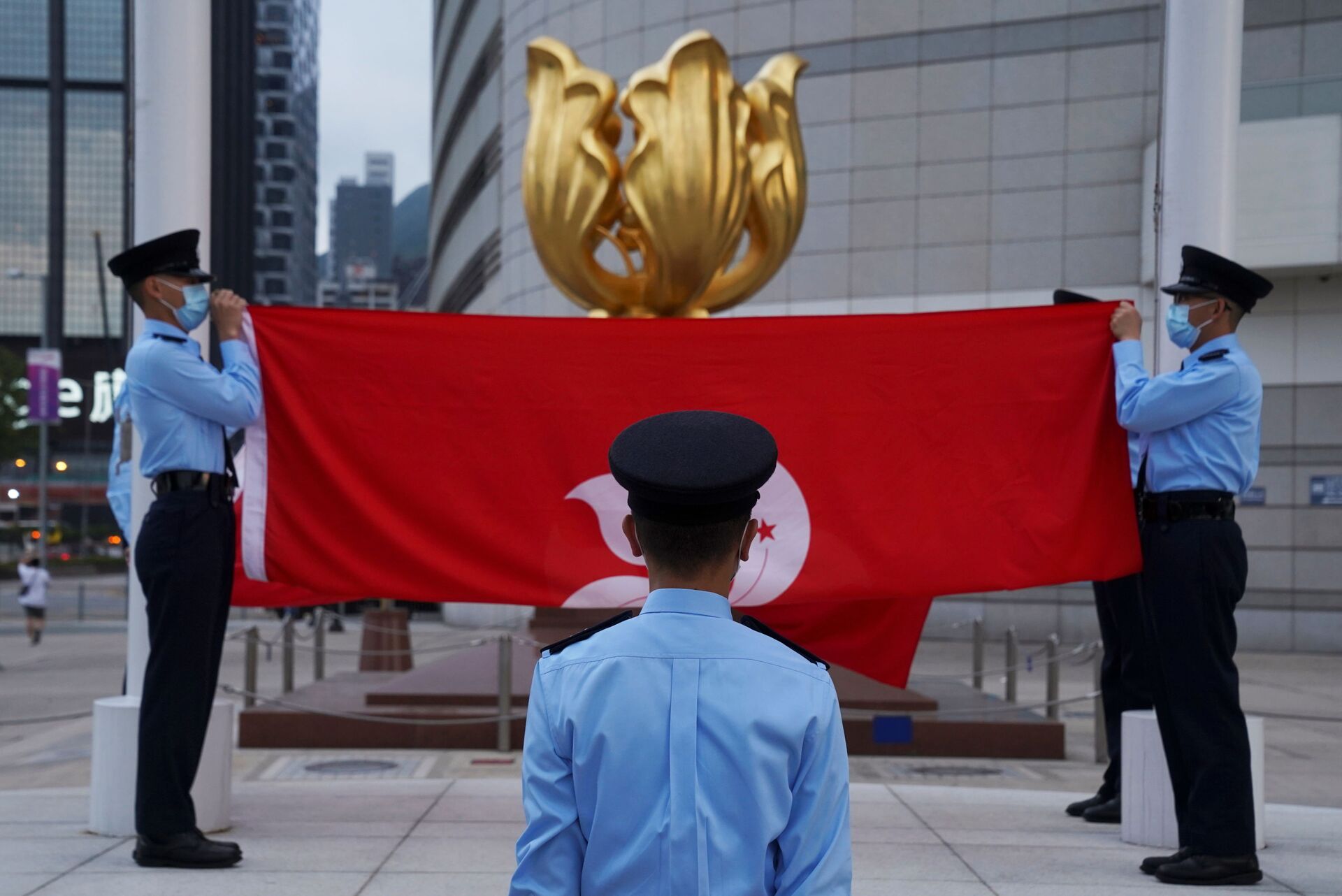
Police officers fold Chinese and Hong Kong flags at a flag-lowering ceremony in front of the Golden Bauhinia statue on the square, in Hong Kong, China March 30, 2021.
© REUTERS / LAM YIK
Democratic POTUS Joe Biden has largely echoed his White House predecessor Donald Trump’s stance in perceiving a rising China as the top challenge of the 21st century due to its growing military might and economy.
After Trump launched a trade war with China in in 2018, accusing it of abusing existing trade practices, the bilateral closing of consulates in July 2020 marked the peak of tensions between the sides. Trump also signed the Uyghur Human Rights Policy Act passed by Congress in June 2020, which introduced sanctions against China over the alleged illegal detention of more than one million Uyghur Muslims in Xinjiang - something Beijing denies.
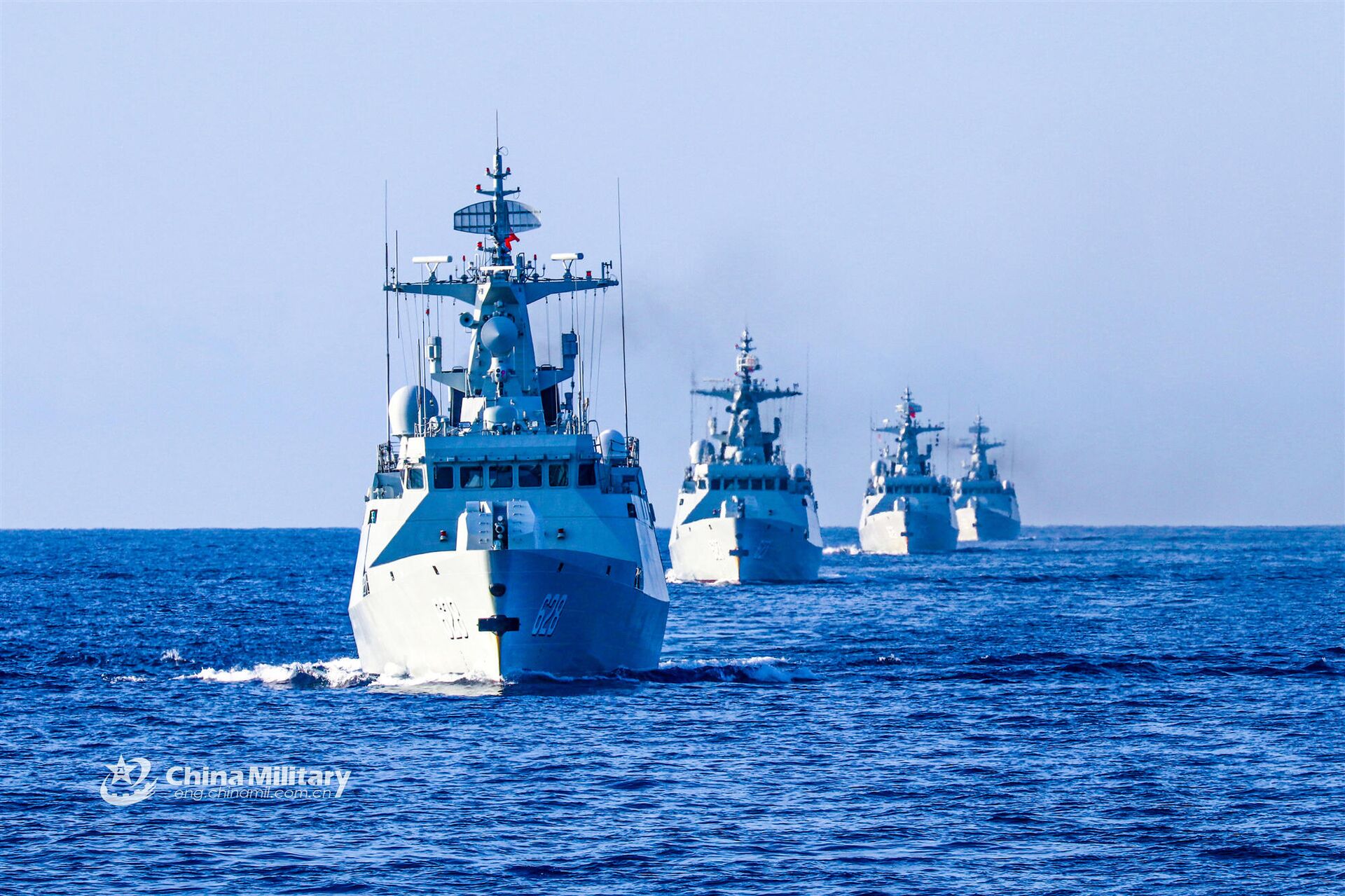
The frigate Enshi (Hull 627), Yongzhou (Hull 628), Bazhong (Hull 625), and Wuzhou (Hull 626) steam in formation during a 9-day maritime training exercise in waters of the South China Sea in late November, 2020. They are attached to a frigate flotilla of the navy under the PLA Southern Theater Command.
In another move, ostensibly to offset China’s assertiveness, the US increased the frequency of its military missions in the disputed waters of the South China Sea despite protests and warnings from Beijing. Tensions have been fueled by Washington’s accusations leveled at Beijing over alleged hacking attacks, which have likewise been dismissed by the Chinese authorities as groundless.
Although China’s experts do not believe it is possible that things will suddenly turn around after the Chinese President’s meeting with the US POTUS, they anticipate that with enhanced communication, conditions may be forged for the next step in the development and adjustment of Beijing-Washington relations.


